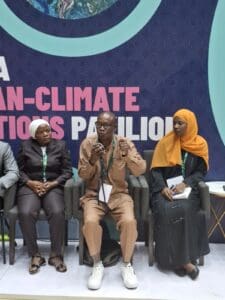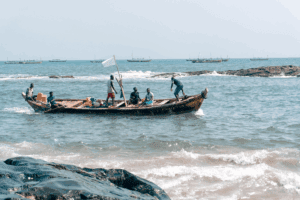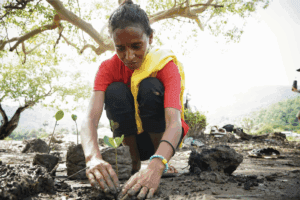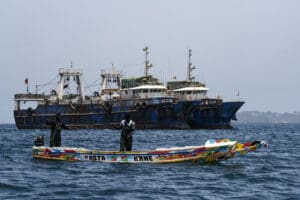The parliament of Ghana has passed the Fisheries and Aquaculture Bill, 2025, to enhance effective regulation of these sectors.
With the passing of the bill, the recent commitments to extend the country’s Inshore Exclusive Zone (IEZ) from 6 to 12 nautical miles, prohibiting industrial fishing across the entirety of Ghana’s territorial seas become enshrined in law.
The bill establishes a modern legal framework to improve governance, development and sustainability within the fisheries sector, which plays a crucial role in Ghana’s national economy. For the fishing communities along the coast, who for years have called for stronger protection against the threat posed by industrial fishing activities, and for a clear role in the management of coastal fisheries, the legislation marks a huge milestone.
Transform Bottom Trawling Coalition members, including small-scale fisher representatives, have campaigned extensively for the establishment and extension of IEZs across territorial seas, and were instrumental in securing the initial commitment from Ghana’s government, as well as the passing of the bill.
Nana Kweigyah, National President of BV’s collaborator in the region, the Canoe and Gear Owners in Ghana (CaFGOAG) reacted; “On behalf of artisanal fishers, I express a heartfelt appreciation and congratulations to the Parliament of Ghana, the Government of Ghana, and all fisheries stakeholders for the historic decision.
“As custodians of the sea, CaFGOAG pledges full cooperation to ensure the success of this milestone decision, and is ready to mobilise fishers for participatory monitoring and surveillance of the extended IEZ.”
 The bill was originally presented to Parliament by the Minister for Fisheries and Aquaculture, Emelia Arthur, pictured next to Nana Kweigyah at the third UN Oceans Conference in Nice.
The bill was originally presented to Parliament by the Minister for Fisheries and Aquaculture, Emelia Arthur, pictured next to Nana Kweigyah at the third UN Oceans Conference in Nice.
Protecting the territorial seas from industrial fishing will help safeguard the livelihoods of thousands of artisanal fishers and fish processors, protect fish breeding and nursery grounds, and promote the recovery of dwindling fish stocks in Ghana’s coastal waters. This in-turn can bolster food security and the local economies of coastal communities. The bill also introduces stricter penalties for illegal, unreported and unregulated (IUU) fishing.
Commenting on the bill’s passing, Blue Ventures’ Chief Programme Officer Dr Steve Box said; “I and my colleagues across West Africa applaud the leadership of the Parliamentary Select Committee on Food, Agriculture and Cocoa Affairs, the Ministry of Fisheries and Aquaculture Development, and the Fisheries Commission for supporting this process.
The passing of the bill is a historic moment, and now the focus is on effective implementation, including strengthening co-management and ensuring robust monitoring, control, and surveillance, to ensure that communities are empowered as custodians of the territorial seas.
We also hope that this important decision by Ghana, to prioritise the rights of coastal communities and to safeguard their futures, is now recognised and emulated across the West African coastline and beyond. We urge other nations to forge this positive path for ocean justice by centering coastal communities in the governance of their waters.”
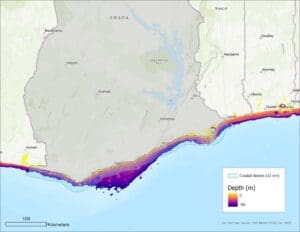 Legislation proposes that the exclusion zone is extended to 12 nautical miles or 50m depth, depending on which is further. (Source, Blue Ventures)
Legislation proposes that the exclusion zone is extended to 12 nautical miles or 50m depth, depending on which is further. (Source, Blue Ventures)
Read more about BV’s work amplifying community voices here.
Featured image Stefan Kleinowitz | Blue Ventures


